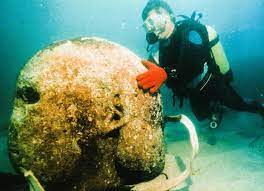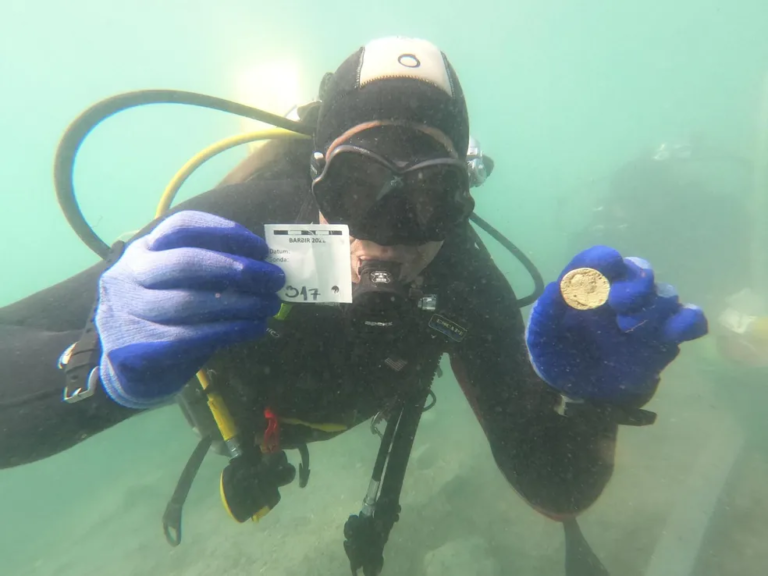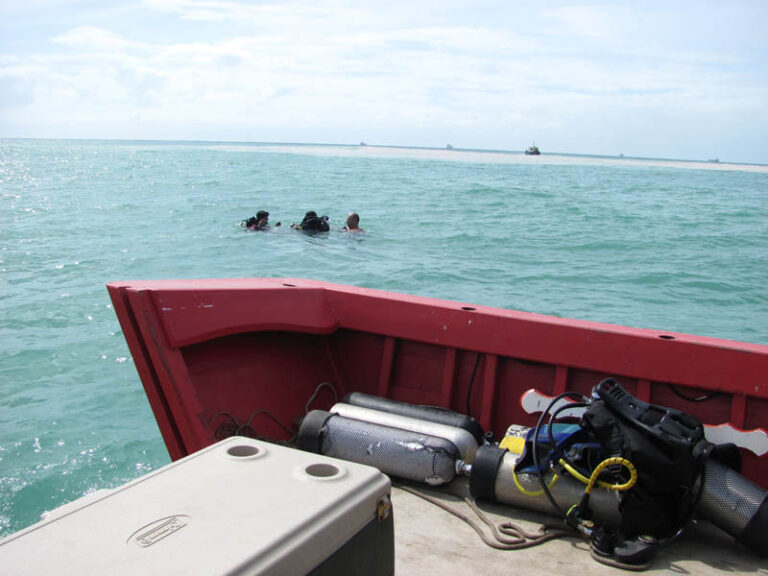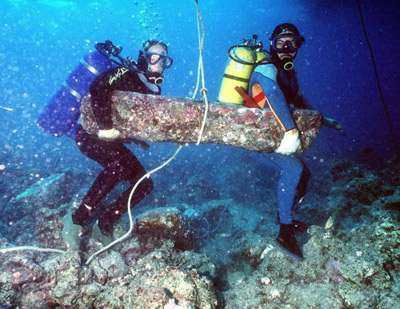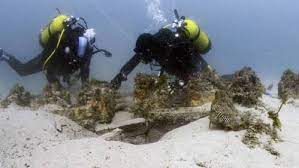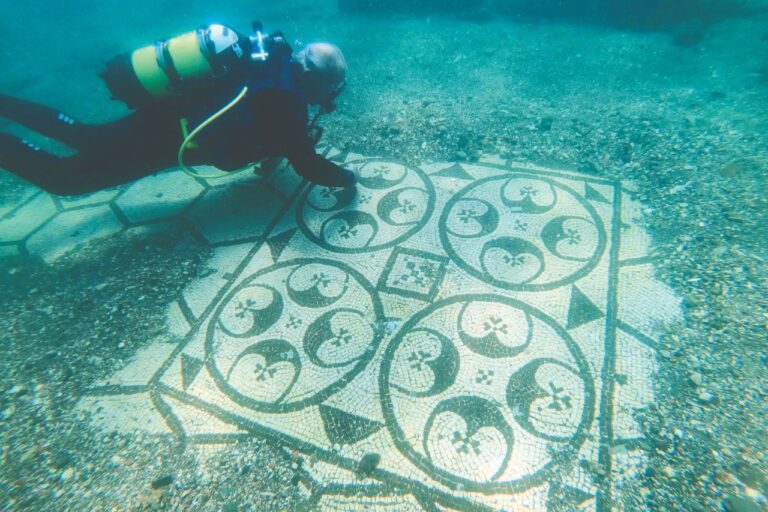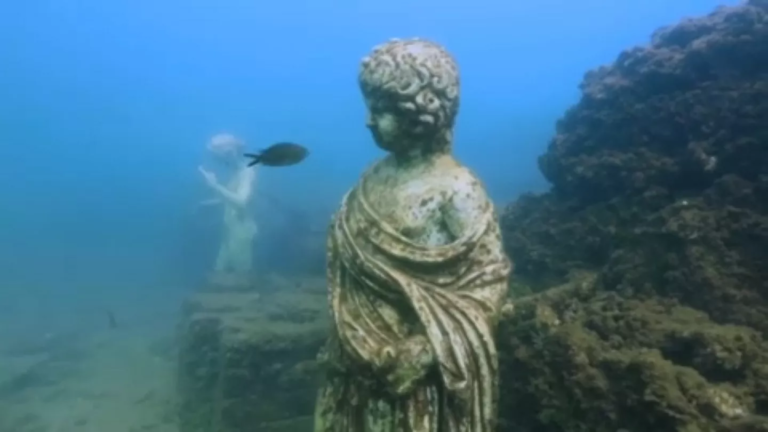Tips for Recreational Diving with a Focus on Underwater Archaeology
The interest in recreational diving with a focus on underwater archaeology has been steadily growing in recent years. People are becoming more aware of the rich cultural heritage submerged beneath the oceans and are eager to explore and preserve it. This combination of adventure and historical preservation has attracted divers from all over the world.
However, it is important to understand that recreational diving with a focus on underwater archaeology requires certain precautions and guidelines to ensure a safe and responsible experience. Divers must be aware of the potential risks and challenges that come with exploring underwater archaeological sites.
By following certain tips and guidelines, divers can not only enhance their own safety but also contribute to the preservation and documentation of underwater cultural heritage. These tips include proper training and certification, thorough research and preparation, and the use of essential equipment and gear. By adhering to these guidelines, divers can not only experience the thrill of exploring underwater archaeological sites but also play a role in their preservation for future generations to enjoy.
Table of Contents
Understanding Underwater Archaeology
Underwater archaeology is the study and exploration of submerged cultural sites and artifacts. It plays a vital role in unraveling history and understanding the development of human civilizations. The significance of underwater archaeology lies in its ability to preserve and protect underwater cultural heritage.
Underwater archaeology involves the discovery, excavation, and analysis of ancient structures, shipwrecks, artifacts, and other traces of human activity that have been submerged underwater for centuries. It provides valuable insights into past civilizations and helps fill gaps in our understanding of historical events.
Preserving underwater cultural heritage is crucial for maintaining the integrity of these underwater sites and ensuring that future generations can learn from them. These submerged sites and artifacts are vulnerable to natural disasters, looting, and deterioration caused by human activities. By studying and documenting them, we can safeguard this cultural heritage for future generations.
Underwater cultural heritage includes a wide range of sites and artifacts, such as shipwrecks, ancient ports, submerged cities, and even prehistoric settlements. These sites hold immense historical, archaeological, and anthropological value. They offer a window into the past, shedding light on ancient trade routes, maritime history, and the lives of people who lived centuries ago.
In conclusion, underwater archaeology plays a crucial role in understanding our heritage and preserving the remains of our collective past. By studying and protecting underwater cultural heritage, we can gain valuable insights into human history and ensure that these important sites and artifacts are safeguarded for future generations.
Essential Skills and Training
When it comes to recreational diving with a focus on underwater archaeology, proper training and certification are essential. Divers must undergo specialized training to ensure they have the necessary skills and knowledge to explore underwater archaeological sites safely and responsibly.
To engage in underwater archaeology, divers should possess essential underwater skills and techniques. This includes proficiency in buoyancy control, navigation, and underwater surveying. These skills are crucial for effectively navigating through underwater environments and accurately documenting archaeological finds.
Fortunately, there are various organizations and courses available that offer specialized training in underwater archaeology. These courses cover topics such as site documentation, artifact recovery, and conservation techniques. Organizations such as the Underwater Archaeology Society and the National Association of Underwater Instructors provide comprehensive training programs designed specifically for divers interested in exploring the world of underwater archaeology.
By acquiring the necessary skills and seeking proper training, recreational divers can not only enhance their own diving experiences but also contribute to the preservation of underwater cultural heritage. Remember, diving with a focus on underwater archaeology requires a unique set of skills and knowledge, and it is crucial to invest in training to ensure a safe and fulfilling experience.
Research and Preparation
Emphasize the importance of thorough research and preparation before diving
Before embarking on a recreational diving adventure with a focus on underwater archaeology, it is crucial to prioritize thorough research and preparation. This step cannot be understated, as it lays the groundwork for a successful and meaningful diving experience. By taking the time to research and prepare adequately, divers can maximize their understanding of underwater archaeological sites, ultimately enhancing their overall experience.
Discuss the significance of studying historical records, maps, and documents related to potential underwater archaeological sites
One critical aspect of research is studying historical records, maps, and documents that are relevant to potential underwater archaeological sites. These sources can provide invaluable insights into the history and significance of the site, allowing divers to enhance their understanding of the cultural heritage that lies beneath the water’s surface.
By carefully studying historical records, divers can gain a deeper appreciation for the site’s significance and the artifacts they may encounter underwater. This research can also help in identifying areas of interest within the site, guiding divers toward specific locations to explore. Additionally, reviewing maps and documents can assist in understanding any relevant regulations or restrictions that may apply to the site, ensuring a responsible and lawful diving experience.
Provide resources and tips on how to conduct effective research
Conducting effective research is essential for recreational divers focusing on underwater archaeology. To assist in this process, it is helpful to utilize various resources and apply specific tips for efficient research. Online databases, archives, and academic journals often house valuable information about underwater archaeological sites, making them excellent starting points for divers.
Furthermore, seeking guidance from knowledgeable professionals in the field can provide invaluable insights and tips for effective research. Engaging with organizations dedicated to underwater archaeology can facilitate access to additional resources and expert advice. By harnessing these resources and implementing effective research techniques, divers can ensure a more informed and enriching diving experience.
In conclusion, research and preparation are integral components of recreational diving with a focus on underwater archaeology. By emphasizing the significance of thorough research, including studying historical records, maps, and documents, divers can enhance their understanding of the cultural significance of underwater archaeological sites. By providing resources and tips for effective research, divers can approach their diving experience with a well-rounded and informed perspective, contributing to the preservation and documentation of underwater cultural heritage.
Equipment and Gear
When it comes to recreational diving with a focus on underwater archaeology, having the right diving equipment is essential. Proper gear not only ensures your safety but also allows you to fully immerse yourself in the exploration of underwater cultural heritage. Here are some essential pieces of equipment for underwater archaeology:
- Mask, snorkel, and fins: These basic essentials provide comfort and ease of movement underwater. A well-fitted mask and snorkel allow for clear vision and easy breathing, while fins help optimize propulsion.
- Buoyancy control device (BCD): A BCD enables divers to control their buoyancy underwater, making it easier to navigate the depths and maintain a steady position. It also provides a secure attachment for other gear.
- Regulator: The regulator is responsible for delivering air from the scuba tank to the diver’s mouth. Investing in a high-quality regulator ensures a reliable and consistent air supply while underwater.
- Dive computer: A dive computer is a crucial piece of equipment that helps divers manage their underwater time and depths. It provides important information such as ascent rates, nitrogen levels, and decompression limits.
When it comes to maintaining and inspecting gear, it is imperative to follow recommended guidelines. Regularly checking equipment for wear and tear, ensuring proper function, and storing it in a dry and clean environment are just a few steps divers should take to prolong the lifespan of their gear.
In underwater archaeological exploration, there may be specific equipment requirements to consider. Depending on the nature of the dive and the site being explored, specialized tools such as underwater cameras, underwater metal detectors, and measuring devices may be necessary. It is important to research and understand the specific equipment needs for each archaeological dive to ensure a successful and productive exploration.
By investing in the right equipment, maintaining it properly, and adhering to specific requirements, recreational divers can fully enjoy their underwater archaeological endeavors while contributing to the preservation of underwater cultural heritage. So, equip yourself with the necessary gear, dive into the depths, and uncover the wonders of the past hidden beneath the waves.
Safety Guidelines
Diving in underwater archaeological sites can be an exhilarating and rewarding experience, but it’s important to prioritize safety. Here are some essential safety guidelines for recreational divers focusing on underwater archaeology.
- Always dive with a buddy: One of the most critical safety measures is to carry a diving buddy. Diving alone can be dangerous, especially in unfamiliar archaeological sites. Having a diving buddy ensures that someone is there to assist you in case of emergencies and to share the experience with.
- Maintain constant communication: Constantly communicate with your diving buddy using hand signals or underwater communication devices. Clear and regular communication is crucial, not only for sharing the excitement of underwater discoveries, but also for quickly and effectively addressing any potential issues.
- Follow proper decompression procedures: Understand and adhere to the recommended decompression procedures provided by your diving training and certification. These procedures help prevent decompression sickness, commonly known as “the bends.” Ascend slowly and make the necessary safety stops to allow your body to adjust to changes in pressure.
- Handle emergencies responsibly: While underwater archaeological explorations are generally safe, it’s important to be prepared for emergencies. Familiarize yourself with emergency procedures and know how to handle common diving emergencies, such as equipment malfunctions or buddy separation. Properly maintaining your gear and having a well-practiced emergency plan can prevent dangerous situations from becoming catastrophic.
By following these safety guidelines, you can ensure a safe and enjoyable diving experience while contributing to the preservation of underwater cultural heritage. Always prioritize your safety and the safety of others around you while exploring the fascinating world of underwater archaeology.
Contributing to Underwater Archaeology
Recreational divers have a unique opportunity to contribute to underwater archaeological research and preservation efforts. The underwater world holds countless treasures from the past, and recreational divers can play a crucial role in documenting and protecting underwater cultural heritage.
One way that recreational divers can assist professionals in underwater archaeology is by reporting any significant findings or potential archaeological sites that they come across during their dives. This could include artifacts, shipwrecks, or even ancient structures. By documenting and providing accurate information about these discoveries, divers can help archaeologists map and study underwater sites, contributing to our understanding of history.
In addition to reporting findings, recreational divers can also participate in conservation activities. This could involve helping to clean and maintain underwater archaeological sites, removing debris that can damage or obscure artifacts. By doing so, divers can help preserve these sites for future generations and ensure that they remain intact and accessible.
Volunteering opportunities are available for divers who are particularly passionate about underwater archaeology. Many organizations and institutions run projects that rely on the assistance of volunteers. These projects may involve surveying and cataloguing artifacts, assisting with underwater excavations, or participating in educational outreach programs. By getting involved in such projects, recreational divers can actively contribute to the field of underwater archaeology and make a difference in the preservation of our cultural heritage.
There are various organizations dedicated to underwater archaeology that offer volunteering opportunities and conduct research and preservation projects. These organizations often welcome divers who are interested in contributing to their efforts. By joining such organizations, divers can gain valuable experience and knowledge while making a meaningful impact in the field.
Recreational divers have the power to be stewards of our underwater cultural heritage. By staying engaged, reporting findings, participating in conservation activities, and volunteering with relevant organizations, divers can actively contribute to the research and preservation of underwater archaeological sites. The more people involved in these efforts, the greater our chances of uncovering new historical discoveries and ensuring the protection of our shared past.
Conclusion
In conclusion, it is crucial to follow the tips and guidelines provided for recreational diving with a focus on underwater archaeology. This growing interest in combining exploration and history has sparked a curiosity among divers, highlighting the need for safety and responsible diving practices.
By understanding underwater archaeology, divers gain a deeper appreciation for the significance of preserving underwater cultural heritage. Through proper training and certification, divers can develop the essential skills and techniques necessary for underwater archaeology exploration. Various organizations and courses offer specialized training in this field, ensuring that divers have the knowledge and expertise to contribute to underwater archaeological research.
Thorough research and preparation cannot be understated in the realm of underwater archaeology. By studying historical records, documents, and maps related to potential underwater archaeological sites, divers can enhance their understanding of the context and significance of these sites. Effective research methods and resources are essential for a meaningful diving experience.
Equally important is having the right equipment and gear. Divers should not only possess a list of essential diving equipment but also understand the importance of maintaining and inspecting their gear before diving. Some underwater archaeological expeditions may require specific equipment, and divers should be aware of these requirements.
Safety is paramount when engaging in recreational diving with a focus on underwater archaeology. Following comprehensive safety guidelines is crucial, such as always diving with a buddy and maintaining constant communication. Divers should also be well-versed in proper decompression procedures and be prepared to handle emergencies.
To truly contribute to the field of underwater archaeology, divers are encouraged to actively participate in research and preservation efforts. By documenting and protecting underwater cultural heritage, recreational divers can play a vital role in furthering our knowledge and understanding of the past. Volunteering opportunities and organizations involved in underwater archaeology projects provide avenues for divers to make a tangible impact.
In conclusion, recreational diving with a focus on underwater archaeology offers an exciting and rewarding experience. By following the provided tips and guidelines, divers can ensure their safety, contribute to the preservation of underwater cultural heritage, and be part of the ongoing exploration of our submerged past.

